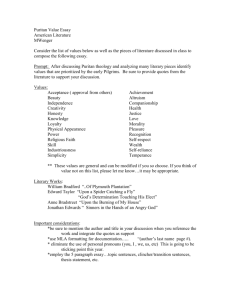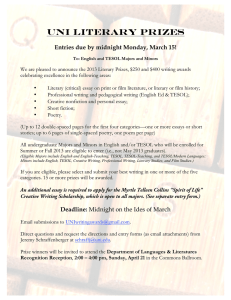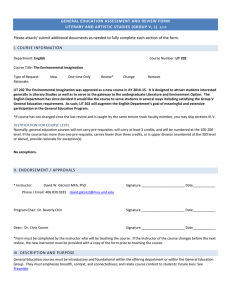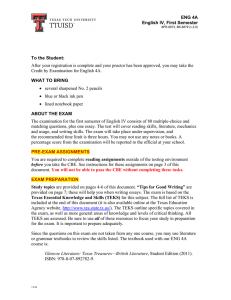Form E-1-A for Boston College Undergraduate Programs
advertisement
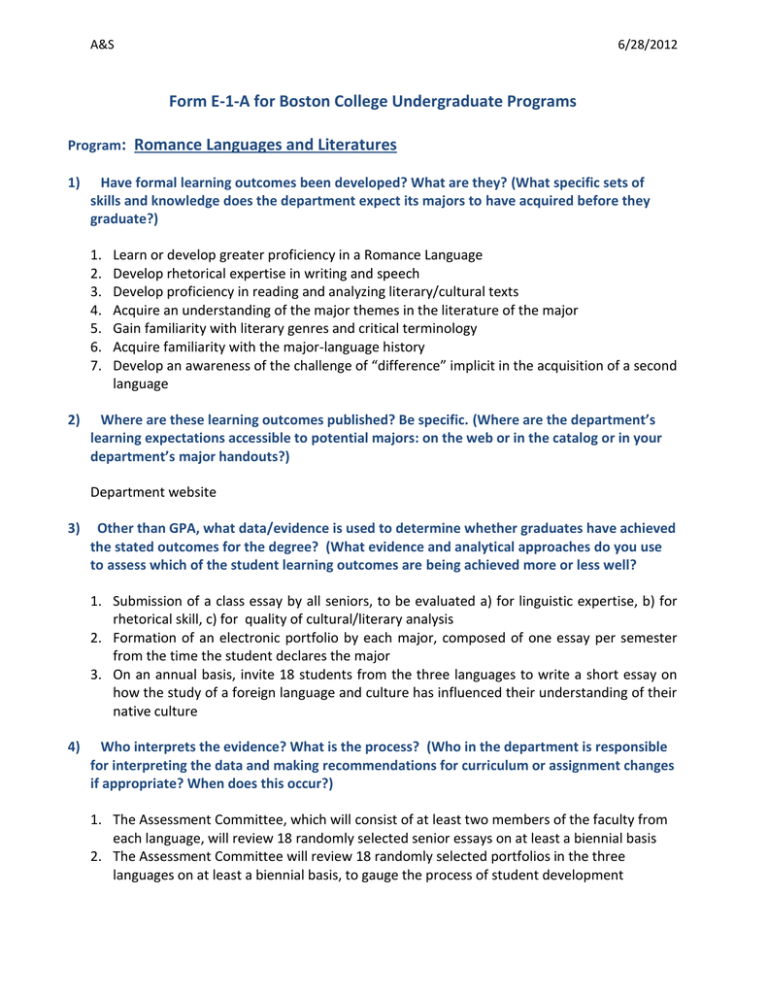
A&S 6/28/2012 Form E-1-A for Boston College Undergraduate Programs Program: Romance Languages and Literatures 1) Have formal learning outcomes been developed? What are they? (What specific sets of skills and knowledge does the department expect its majors to have acquired before they graduate?) 1. 2. 3. 4. 5. 6. 7. 2) Learn or develop greater proficiency in a Romance Language Develop rhetorical expertise in writing and speech Develop proficiency in reading and analyzing literary/cultural texts Acquire an understanding of the major themes in the literature of the major Gain familiarity with literary genres and critical terminology Acquire familiarity with the major-language history Develop an awareness of the challenge of “difference” implicit in the acquisition of a second language Where are these learning outcomes published? Be specific. (Where are the department’s learning expectations accessible to potential majors: on the web or in the catalog or in your department’s major handouts?) Department website 3) Other than GPA, what data/evidence is used to determine whether graduates have achieved the stated outcomes for the degree? (What evidence and analytical approaches do you use to assess which of the student learning outcomes are being achieved more or less well? 1. Submission of a class essay by all seniors, to be evaluated a) for linguistic expertise, b) for rhetorical skill, c) for quality of cultural/literary analysis 2. Formation of an electronic portfolio by each major, composed of one essay per semester from the time the student declares the major 3. On an annual basis, invite 18 students from the three languages to write a short essay on how the study of a foreign language and culture has influenced their understanding of their native culture 4) Who interprets the evidence? What is the process? (Who in the department is responsible for interpreting the data and making recommendations for curriculum or assignment changes if appropriate? When does this occur?) 1. The Assessment Committee, which will consist of at least two members of the faculty from each language, will review 18 randomly selected senior essays on at least a biennial basis 2. The Assessment Committee will review 18 randomly selected portfolios in the three languages on at least a biennial basis, to gauge the process of student development A&S 6/28/2012 3. The Assessment Committee with review on an annual basis all student-essays on the role of the major in the development of a broader cultural awareness 4. The Assessment Committee will make curricular recommendations for discussion by the faculty



